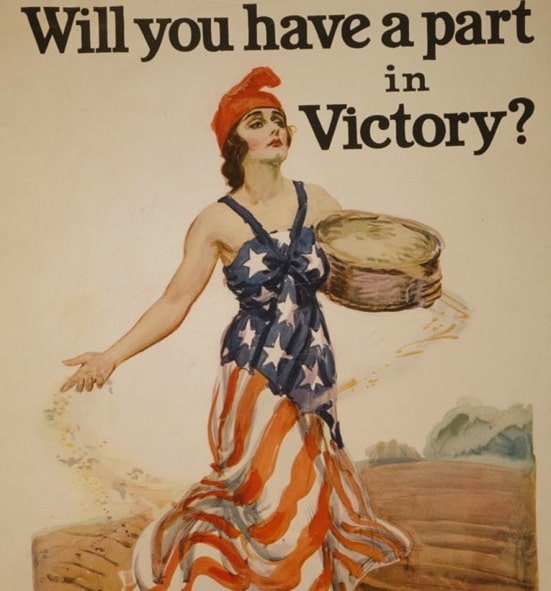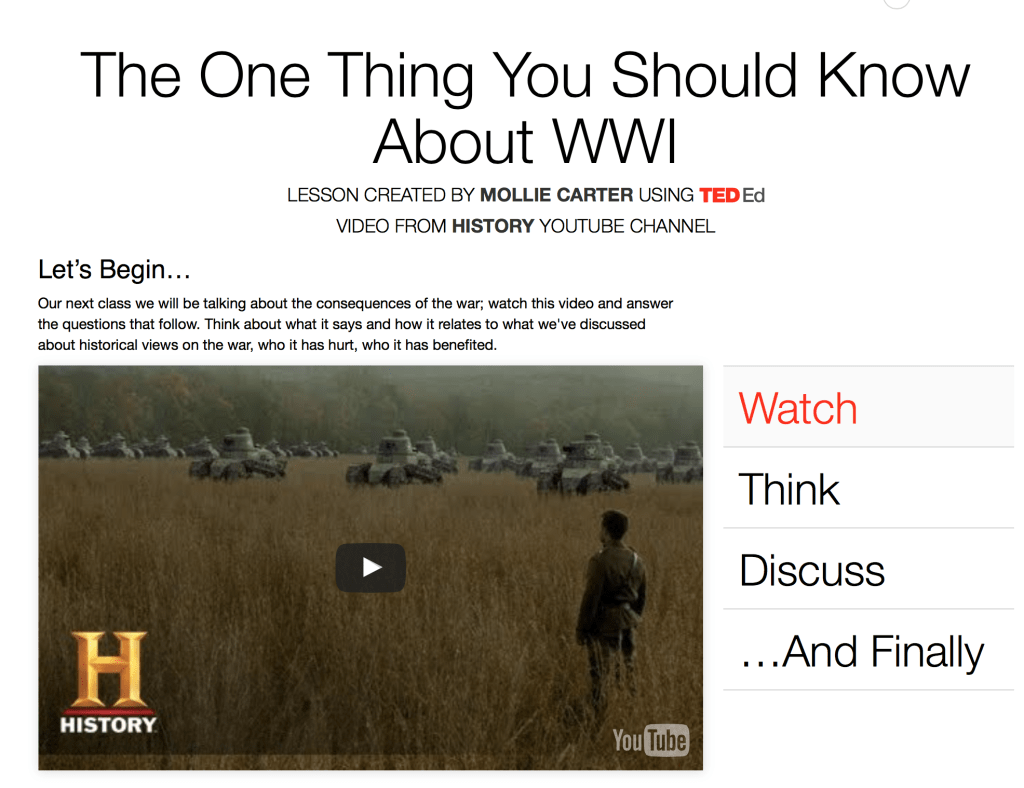Prompt: Students were asked to design a flipped lesson and then write a blog post that showcases their flipped lesson and reaction to designing it.
For my unit that I will teach in student teaching, I am covering World War One. As I was designing this unit I wanted to think of interesting ways to present the information to students. My cooperating teaching uses a loose flipped classroom model anyway; the students do the reading for homework (they have two days since we are on a block schedule) and then we have discussions, or activities, in class.
For this unit I have probably over done it on the readings; I wanted to give them a broad understanding of things that were happening during the war and a chance to read the primary sources to figure out their own opinion of what happened. This is how I started the unit, in the middle we are taking a look at various historians perspectives on the war to give the students a broad scope and help to shape their ideas.
I’m hoping that by giving them the primary sources first and allowing for deep analysis in class, they will better be able to judge the historical accounts and take what they need out of them for their final paper of the unit.
At the tail end of the unit, we will be discussing the consequences of the war and the lasting effects. That’s where a flipped lesson comes in The One Thing You Should Know About WWI.
I picked yet another historians perspective on the entirety of the war, but in video form with the use of other visual media to make their points. It’s from the History Channel and it’s entitled “The one thing you should know about WWI”, similar to this post. Following the video there is a short (and easy) quiz and a discussion. As far as their homework goes this is easy.
The next day in class we will be working on an in-class group presentation about preventing this history from repeating itself. I will preface the class with some modern examples of similar actions or conflicts; the students are supposed to be keeping up on current events. And then they will divide into groups to create a sticky-poster about what lessons from WWI modern politicians should keep in mind as they govern their nations.
As an aside, designing the lesson on TEDEd was incredibly easy and, as a peer pointed out, very supportive. There are lots of options as to what to include with the video lesson whether that is a quiz or a discussion or an area to include further links. You can add a lot of depth to the lesson, if one so chose.
Source: Library of Congress
Title: Will you have a part in victory?
Creator:James Montgomery Flagg
Year: 1918
(Picture is link to source)


